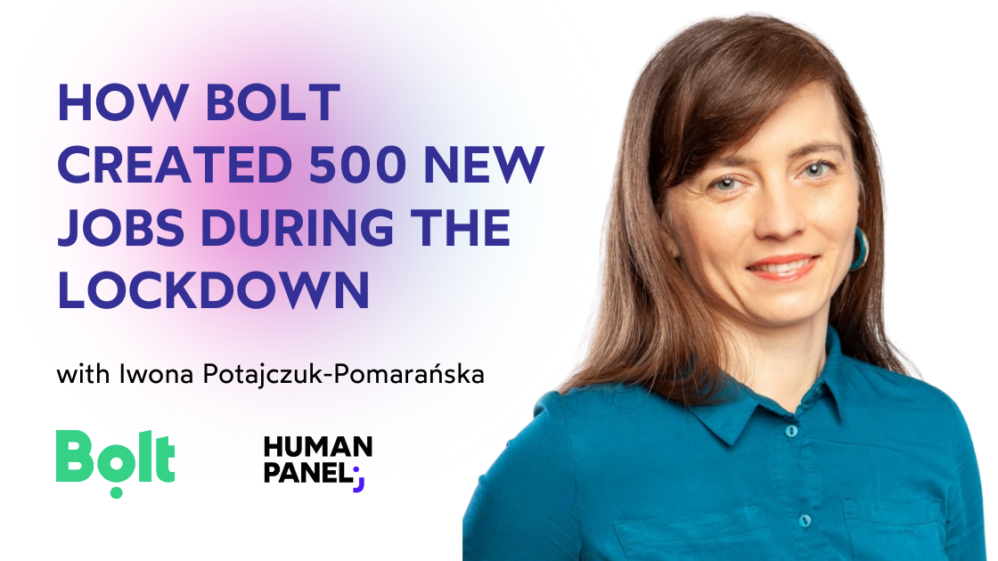Should you drop degree requirements in hiring?

Can you save money and reduce turnover in your company by eliminating degree requirements? First, let’s look at what the data says.
Traditionally, many businesses looked to the familiar and fertile ground of colleges and universities for tech talent. But now, companies like Google, Facebook, and Accenture are revamping their hiring policies and dropping the absolute college degree requirements.
Why is that?
IBM is dropping degree requirements
Let’s look at one of the most prominent examples in the tech industry: IBM. A few months ago, the former CEO of IBM, Ginni Rometty, said that the best thing that employers could do to improve their business was to stop hiring based on college degrees. She pointed out that tech companies should rethink hiring in the tech field. The reason is that now there are more options for training than colleges, including boot camps and certification courses.
43% of job openings at IBM do not require a traditional college degree, and up to 15% of new hires do not have a traditional four-year degree.
“We look at applicants based on their skills, and we’ve been very successful in hiring from coding bootcamps,” said Sam Ladah, Head of Talent Organization at IBM. However, he added that the idea is to look at a different pool of candidates and base hiring on their skills and technical knowledge. “We are looking for people who have a real passion for technology,” Ladah said.
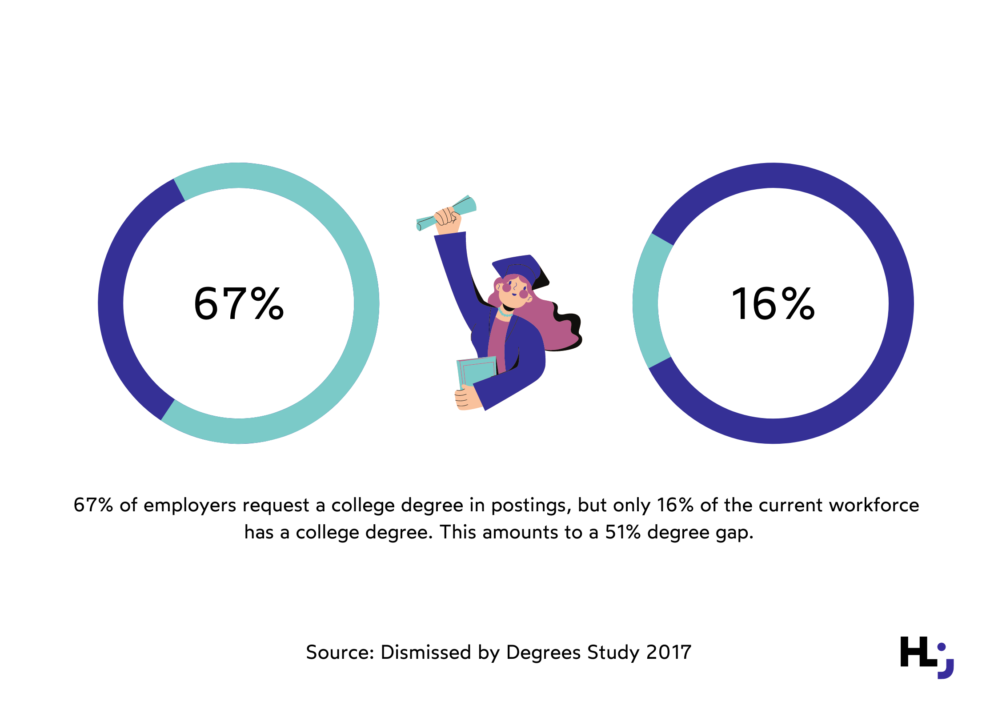
The reasons for dropping the requirements
IBM is not alone. Other tech companies don’t require an academic pedigree either. But what are the reasons for eliminating these requirements? On the surface, companies are trying to incorporate more diversity into their hiring policies. For years, their pipelines were fed primarily by the same elite colleges and universities. That led to relatively homogeneous workplaces and inequalities in business and society. “Just because people didn’t have an opportunity in their early life doesn’t mean they can’t contribute to our company,” said Kenneth Frazier, CEO of Merck & Co.
More diverse companies are more innovative and perform better than others. For example, the McKinsey report “Diversity wins: how inclusion matters” showed that gender-diverse companies outperform their more homogeneous counterparts by as much as 48%. Culturally and ethnically diverse organizations also outperform their peers by 36%.
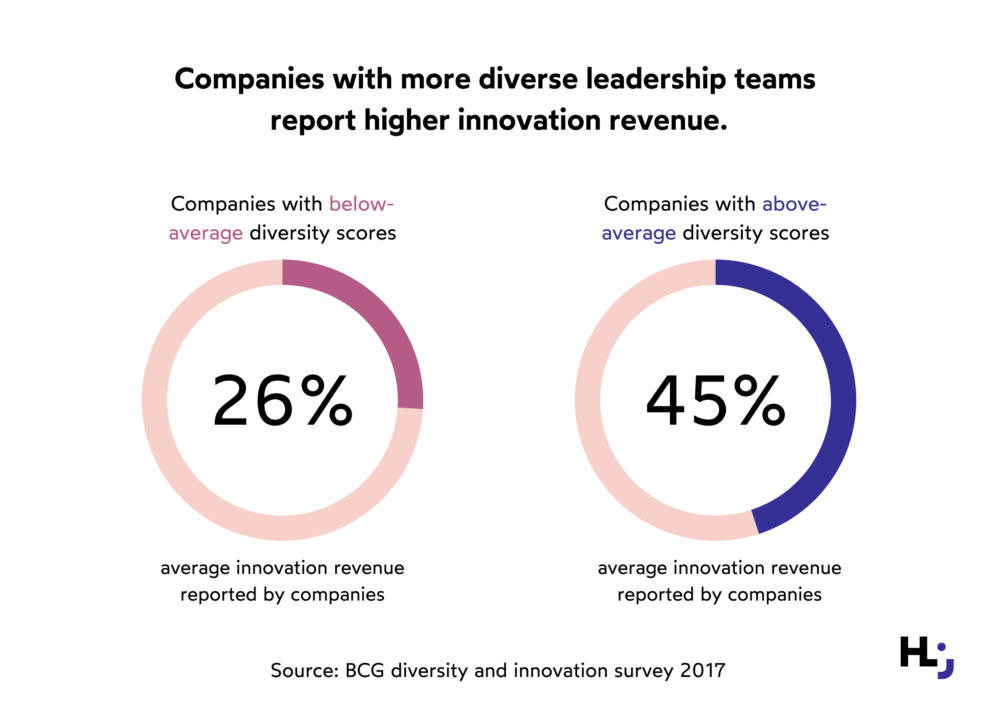
But behind these noble motives lies something else: data revealed by people analytics. Some interesting conclusions were presented by the “Dismissed by Degrees” study. The researchers analyzed 26 million job postings and surveyed 600 business and HR executives, focusing on middle-skill jobs such as supervisors, support specialists, sales representatives, inspectors, secretaries, and administrative assistants.
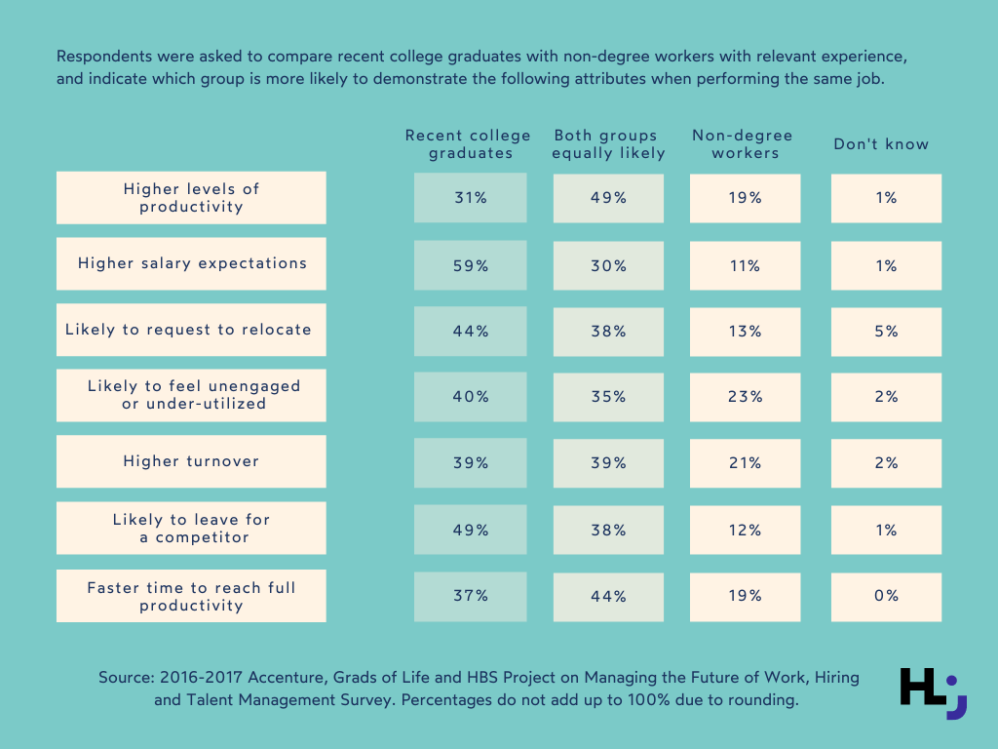
According to these data, three out of five employers surveyed for the Dismissed by Degrees study reported difficulty filling middle-skill jobs. Two-thirds agreed that requiring a bachelor’s degree makes it more challenging to fill these positions. In addition, hiring employees with graduate degrees proved to be more costly. Graduate employees ask for higher salaries, are less committed to their jobs, and have higher voluntary turnover (39%) than non-graduates (21%). They are also significantly more likely to leave their jobs for a competitor (49%) than their non-graduate counterparts (12%).
“Seniority” revised
Eliminating graduation requirements is one challenge. The other is the question of experience among candidates for senior positions. “There’s a battle among managers about what experience is required for the job. Some areas require three to five years of experience. But sometimes the most important thing is whether a person can do the job. And that can be tested and validated through people analytics and data ,” says Daniel Aduszkiewicz, CEO and Co-founder of Human Panel.
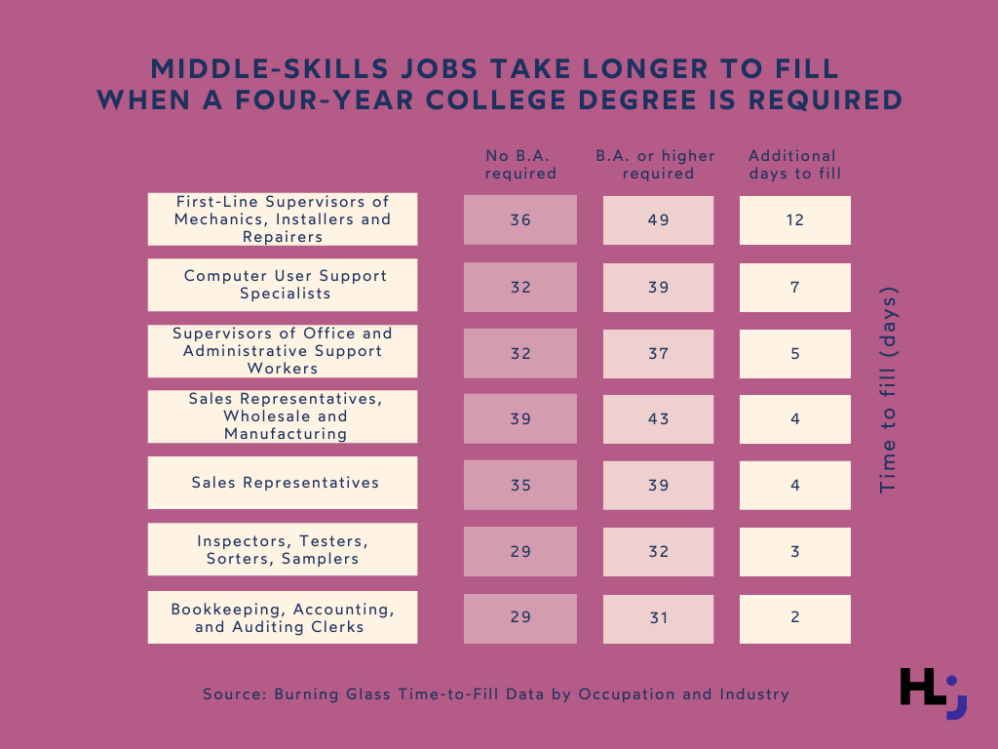
At IBM, candidates are tested on cognitive and technical skills. Virginia Rometty said that the propensity to learn is the most crucial criterion for the company. It found that employees without degrees had performance results equal or better than those with traditional education.
Other companies take a “hire for attitude, train for skills” approach. For example, CVS Health hires and then trains candidates with all levels of education. At the same time, Intel develops internship programs and student-centered initiatives such as the Next Generation of Native American Coders.
Conclusion
For technical jobs and some middle-skill positions, eliminating high school graduation requirements can open the door to a massive pool of potential talent, optimize the costs, and reduce turnover.
There are already companies that focus on skills and admit that a coding bootcamp experience might be equivalent to a formal degree. According to Virginia Rometty from IBM, jobs for cloud programmers, cybersecurity analysts, financial operations, and many healthcare jobs can begin without formal education. There are other ways for prospective employees to gain skills.
However, what’s crucial is to determine what your organization’s needs are, and you can easily do this through data. If you’re willing to see what possibilities people analytics gives – sign up for our free demo and see how Human Panel can improve all your HR processes. Track time to fill, time to hire, and cost per hire, as well as other HR metrics – all you need is to fill in the short form below.


